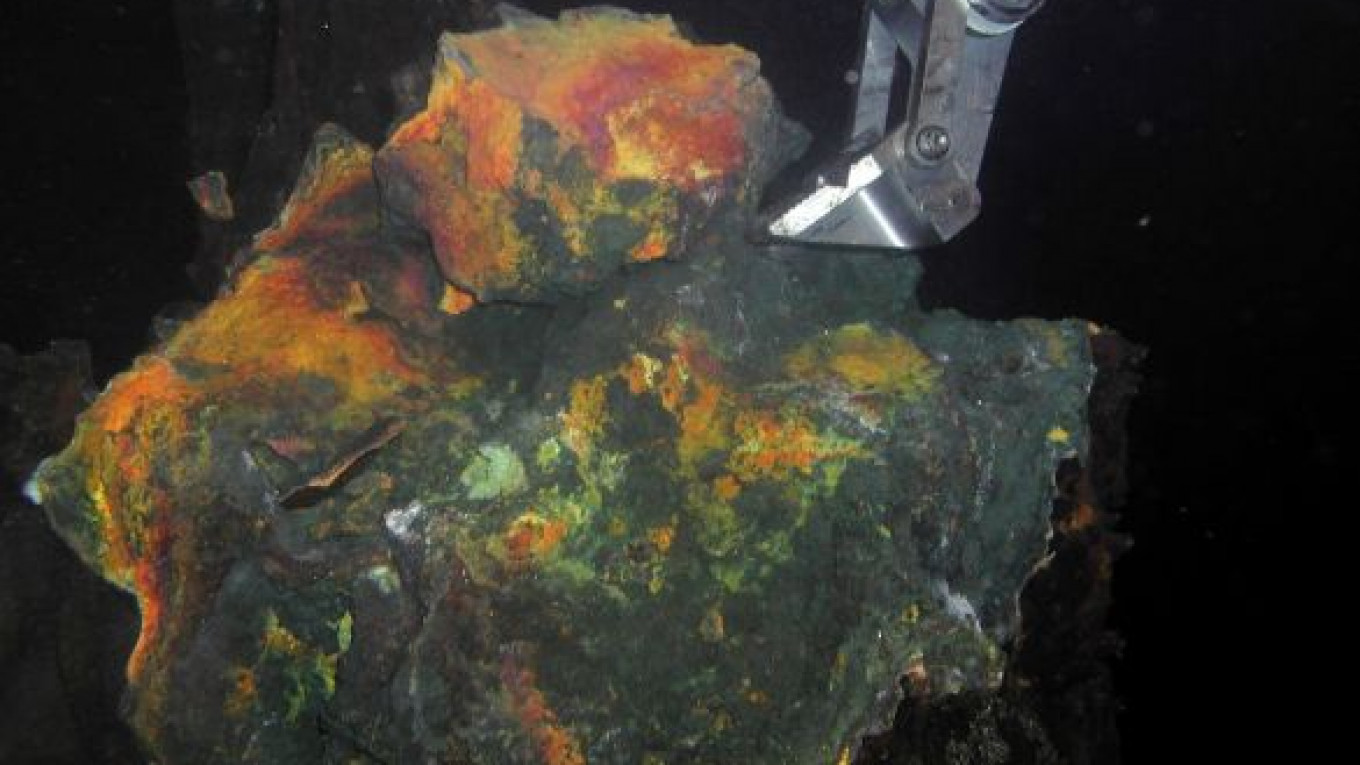A UN decision allowing Russia to prospect for precious metals on the Atlantic seabed opens new frontiers for the country's mineral extraction businesses.
The International Seabed Authority, or ISA, which regulates mineral exploration in international waters, approved at the end of last week Moscow's request to begin prospecting in the mid Atlantic.
Under a 15-year agreement to be signed later this year, Russia will have rights to explore several sites covering a 10,000-square-kilometer area midway between Africa and South America.
Experts believe that the area could contain an estimated 50 million to 70 million tons of gold and copper ore.
Exploration will be carried out by the St. Petersburg Institute of Oceanography, which is also putting together geological surveys that will form the basis for Russia's claim to a large area of the Arctic seabed.
The exploration project is likely to cost $20 million to $43 million over the next five years, the Natural Resources and Environment Ministry told Kommersant.
Commercial extraction will likely require billions of dollars in investment.
Kommersant reported that Nautilus Minerals, a Canadian company 20 percent owned by Alisher Usmanov, may be invited to join the exploration.
Deep-sea mining is seen as the next frontier for raw material companies, with Nautilus and Australia's Blue Water Metals leading the way with exploration of deposits in the South Pacific.
The approval for Russia came two days after China got permission to look for iron deposits in the Indian Ocean, and marks growing interest in exploring deepwater deposits in international waters.
Mining companies and resource-hungry nations are attracted by particularly rich deposits of minerals that build up in the high temperatures around hydrothermal vents on the sea floor.
Seabed ore deposits are especially attractive because they contain concentrations of 2 percent to 10 percent metal, compared with 1 percent in onshore deposits.
But conservationists have expressed concern about the impact of deep-sea mining on unique marine ecosystems that have evolved around the vents, and have called on the ISA to make sure that environmental safeguards are in place before the sector develops.
In February this year Greenpeace and the World Wildlife Fund submitted a petition to the International Tribunal for the Law of the Sea, calling for sponsoring countries to be held responsible for any environmental damage a mining company cannot or will not rectify.
The sector is still in its infancy, however, and the first commercial projects are not expected to begin operations before 2013.
The decision allowing the Atlantic ridge exploration has no bearing on Russia's territorial claims to a large swathe of the Arctic Ocean.
Russia is gathering geological evidence to support a submission to the UN commission on the law of the sea, arguing that the underwater Lomonosov and Mendeleyev ridges are extensions of Russia's continental shelf.
If successful, Russia could extend its exclusive economic zone to include 1.2 million square kilometers of the Arctic Ocean floor, reaching as far as the North Pole.
Some experts have estimated that the Arctic seabed could contain as much as a quarter of the world's undiscovered oil and gas deposits and vast reserves of gold and other precious metals.
A Message from The Moscow Times:
Dear readers,
We are facing unprecedented challenges. Russia's Prosecutor General's Office has designated The Moscow Times as an "undesirable" organization, criminalizing our work and putting our staff at risk of prosecution. This follows our earlier unjust labeling as a "foreign agent."
These actions are direct attempts to silence independent journalism in Russia. The authorities claim our work "discredits the decisions of the Russian leadership." We see things differently: we strive to provide accurate, unbiased reporting on Russia.
We, the journalists of The Moscow Times, refuse to be silenced. But to continue our work, we need your help.
Your support, no matter how small, makes a world of difference. If you can, please support us monthly starting from just $2. It's quick to set up, and every contribution makes a significant impact.
By supporting The Moscow Times, you're defending open, independent journalism in the face of repression. Thank you for standing with us.
Remind me later.






